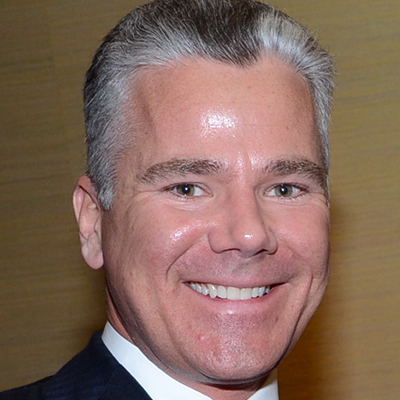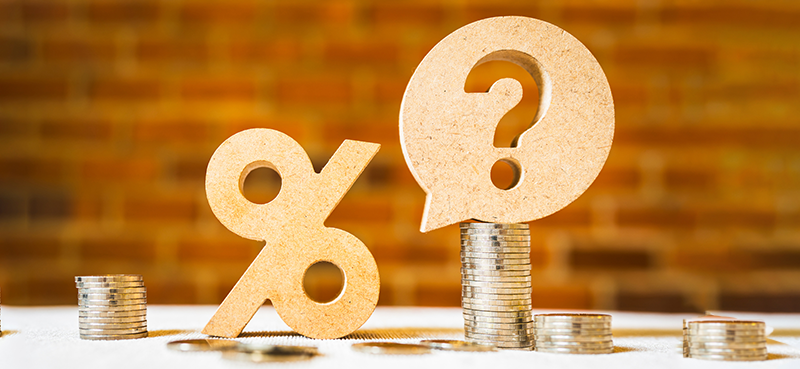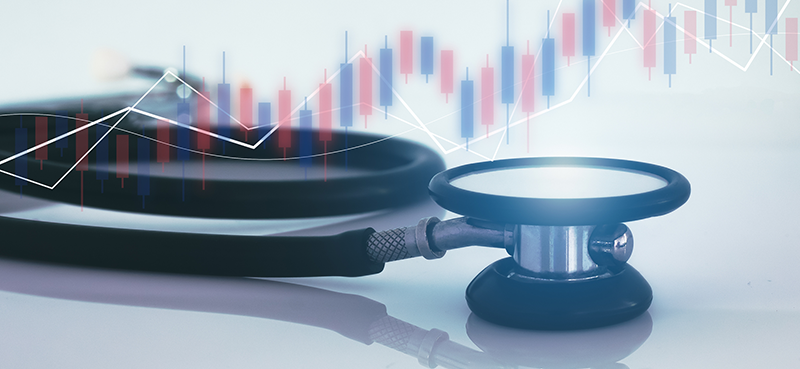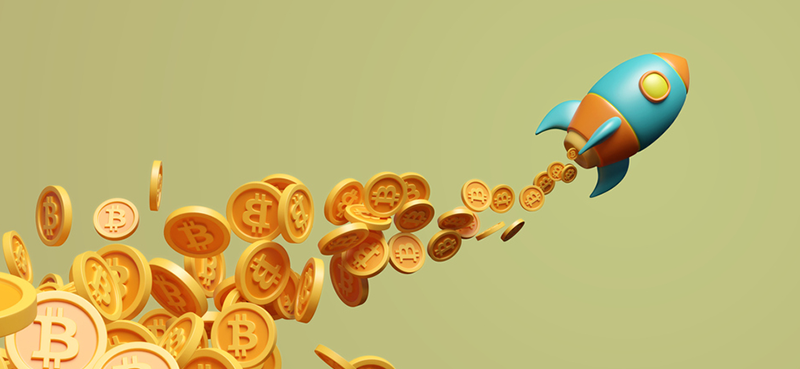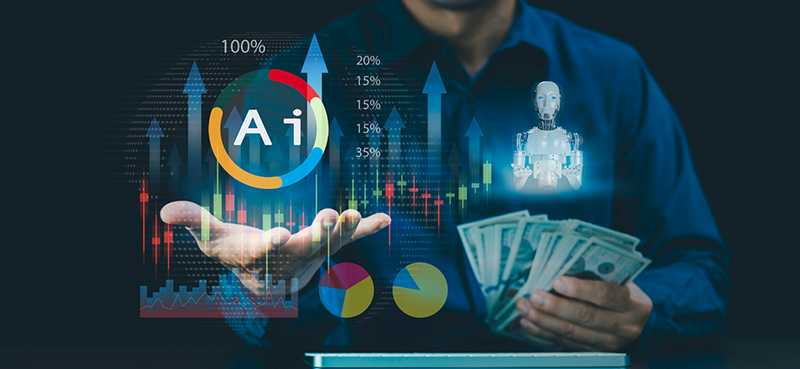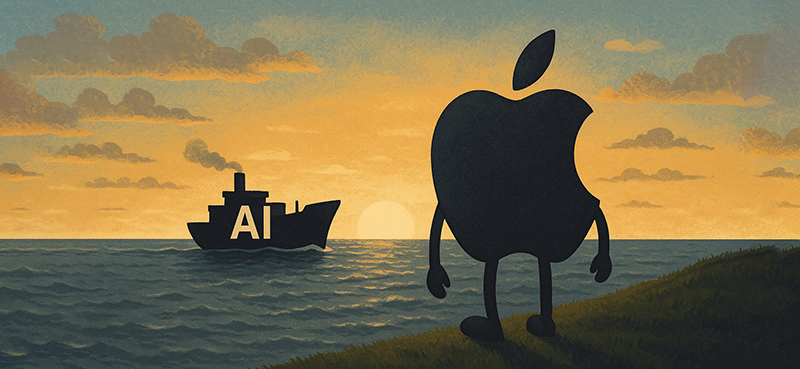Hey guys,
I just spoke to Ed Karr, a global financial expert living under quarantine in Florence, Italy.
Our conversation is extremely timely and critical for every investor to hear.
We discuss:
- How sentiment is affecting investing
- What the U.S. can learn from Italy (and other countries)
- Which industries are in line for a bailout
- Whether a global lockdown is the right move
- Just how bad the economic carnage could be… and what you can do to protect yourself from the fallout
I strongly urge you to watch and share with your friends and family.
Wall Street Unplugged |
Global Lockdown: What we can learn from Italy... and what's next for the U.S.
Frank Curzio: Edward Karr. Thank you so much for joining us on Wall Street Unplugged.
Ed Karr: Frank, it’s always good to be with you. Good to be back.
Frank Curzio: Well, okay, let me put things in perspective here and go through this. This is important. So Edward Karr is a founder, is actually the CEO of US Gold Corp, a company that I’m very familiar with. I went to go see your projects. But I think what a lot of people may not know about you is you founded several investment management, investment banking firms in Geneva, Switzerland. In 2004, Fuchsia magazine named you one of the world’s top traders. You work for Prudential in the United States. Been in financial services for over 25 years. We often talk about the economy, you’re up to date with everything. So, we’re not talking to a geologist here who runs a gold company. We’re talking to someone who’s brilliant, and you happen to be right now, you work internationally all the time, but I think it’s the past few months of the past year. It’s Florence, Italy, if I’m correct. Right?
Ed Karr: Correct. Yeah. My office, I have an office, Frank, I think as you know, in Geneva, Switzerland. But we also have a home in Florence, Italy. So I’ve been down here with my family, and for the last three weeks, we’ve literally been locked down here in Florence. It started out in Northern Italy, the lockdown, and then the Italian government extended it to the whole country.
Frank Curzio: So, take us through the process, because we’re going through it. You said earlier offline that we’re probably three to four weeks behind you. So maybe take us through it from the beginning through the entire process. When you saw this spreading, you’re following China, then South Korea. Then it was kind of Italy, even Iran’s in there. But then all of a sudden it started spreading rapidly. Seems like it was spreading a lot faster and more deaths in Italy, on a relative basis, compared to every place else. And then all of a sudden the lockdown. Take us through that whole period because this is something that never happened in the history of mankind, where we have countries on lockdown, complete lockdown. I mean, what were you thinking? Take us through that process because I know a lot of people here are interested.
Ed Karr: Sure, yeah, Frank, it’s actually been pretty surreal to tell you the truth. We never thought, in the European Union or the United States, we’d ever be subject to lockdowns in our lifetime. And so how it kind of evolved for me, I was in the United States. I travel a lot. I travel at least, well I used to, travel at least half my time. And I was in the United States the end of January, early February. I actually watched a Superbowl with my brother up in Vermont, and then I went down to Florida. I was in Florida for the NOBLE conference in Fort Lauderdale. And when I flew back from there, I flew Miami to Madrid and Madrid connected to Bologna, Italy. So Madrid was fine. This was now mid-February. And when we flew Madrid to Bologna, when we landed in Bologna, they actually had the complete Tyvek suits, masks, the goggles. They had temperature gauges on everyone, and they put us in this kind of abandoned aircraft hangar for about six hours.
Ed Karr: And they checked all of us. And I was like, wow, this is very serious. What’s going on here? So that was the first big flash indication for me mid-February. And then we all saw the news. What happened? Milano, Milan in the Northern part of Italy, is one of the fashion capitals of the world. And the fashion industry has been dominated over the last many years by Chinese buyers. It’s one of the largest markets out there. They fly in to buy their Gucci handbags or Prada shoes, whatever it is. And they had this big fashion event. All these Chinese buyers flew in there and they must’ve brought this virus with them. And this started an explosion in Northern Italy. So this is now mid-February. So this region called Lombardy, Lombardia really started to experience a lot of cases. It can take anywhere from one week to five weeks to gestate inside you and then come out.
Ed Karr: So, the hospitals started noticing a lot of cases. They originally locked down a small town outside of Milan where there were a lot of cases. Then they extended that to all of the Lombardy region. And then as it really started to get worse and the hospitals got more and more overflowed, Italian government extended that lockdown to the entire country. So today in Italy, we are locked down in the entire country and honestly Frank, the last couple of weeks they’re now tightening the noose even more. So three weeks ago here in Florence, the lockdown was relatively fine. You can still go out to the supermarket or the pharmacy, you could walk your dog, you can go for a run, kids would go to the park. Other things like that. About two weeks ago it started to get a little more tight. The lines at the supermarket now are at least an hour.
Ed Karr: There are still provisions on the shelf, but they do the social distancing. You got to stay about a meter apart, three feet from everyone. They only let in a certain amount of people. This last week it’s gotten even more difficult. I’m starting to see disruptions in the supply chain. I know there’s been a run on toilet paper and some jurisdictions in the United States, we’re seeing that exact same thing. Here now in Italy, other things, cleaning products, obviously very, very difficult to get. And that’s really one of my big fears for myself, for my family, is that the pandemic just accelerates so much. Truck drivers all get sick and the supply chain breaks down. Because the whole world now is really just in time. So difficult circumstances. Cases, as you know, if you watch the news, they are skyrocketing here. They’re still accelerating in Italy, day over day, week over week.
Ed Karr: And the problem is right now in Northern Italy, there is not an ICU bed. You cannot find an intensive care bed. There are no ventilators available. They’re all used. The healthcare system is overstretched. It is completely collapsing in cities like Bergamot, Brescia, it’s beyond max capacity. So they’ve been trying to flatten the curve. At the end of the day, Frank, all of us are going to get corona, 90% of the world population. We’re all getting COVID-19 but they want to spread it out so you don’t have 10,000 people per day coming into the hospitals, into the intensive care wards that are about to die. And they haven’t been able to do that.
Ed Karr: Italy, we have a very old population, so the demographics have not been playing into our favor here and they’re very susceptible. So the only way to really try and control this in Italy, now all Western Europe and moving into the United States, lock down the population. And a young guy like me, young guy like you, Frank, we’re in good shape. We’re probably not going to die from this, but you could take it to your parents or your grandparents and that’s like taking a gun into the house and pulling a trigger. So we really all got to be pretty careful.
Frank Curzio: So how long ago was it when you were on total lockdown in the country? How many weeks ago around?
Ed Karr: Three weeks.
Frank Curzio: So, three weeks, and now you’re saying that you’re still seeing an acceleration in cases because what we want to try and do here in the US is try to gauge, what’s going to be the full potential damage. And first was a V shape recovery, which I said there’s no way it’s going to happen. You compare it to SARS. China is a monster compared to 2002, in terms of 17% of GDP where it was 3% back in SARS. 60 million people were traveling back then in 2002 to 2003. It’s 170 million people. 10 X more. So that economy has completely shut down. It’s a lot different than comparing it to SARS. There’s no comparison. But I think here in the US, we were trying to figure out, okay, what’s the full damage?
Frank Curzio: What’s going to happen? And so you had three weeks, you’re still seeing cases go higher and you’re still on lockdown. Do you have an anticipation of how long this will last or not yet? Because you’re hoping, I don’t know if South Korea finally started to subside. I’m not too sure. Who knows about the China numbers, whether we believe them or not. They were pissed off at everyone when we locked down our country from flight and travel. They yelled at us in end of January, even though they knew they had an outbreak in Wuhan. But I guess my question is to you is how long would you think, which may be really tough question, but again from the US we’re trying to gauge what’s going on in Italy because it’s probably going to happen here, of how long that lock down might last?
Ed Karr: Yeah, I’ve seen the best estimates in Italy. They think by early to mid-May the cases might peak and the estimates I’ve seen in the United States could be end of June, early July. So this is going to be with us for some time. And I tell you Frank, I was pretty impressed. I just saw that Fed president Bullard, he was talking about a 50% decline in GDP in Q2.
Frank Curzio: I saw that.
Ed Karr: 50% decline. That’s a depression. That’s the big D. That is not a recession. And think about it, US GDP in the United States last year was 21.77 trillion. So if you have a 50% decline in GDP, they’re talking right now in DC about a $2 trillion stimulus package. Forget about it. It’s got to be that number. What’s 50% of 22 trillion? $11 trillion stimulus would just get you back to zero. They’re going to have to print so much because they have literally shut down 90% of the economy. Airlines are done, hotels are shut off. The service industry, hotels, restaurants, everything, are just completely shut down. So this is unprecedented.
Frank Curzio: Yeah, and they’re saying unemployment’s going to skyrocket to 20% but you know what? Everyone is saying that this is temporary. And I agree with that. This is a temporary problem. We just don’t know the timeframe, we’re hoping it’s shorter rather than longer. But I think what you have to put in perspective, not everyone’s going to run to Disney parks as soon as the corona subsides or even ends. People jumping on flights. We look at September 11th which, again, maybe the closest comparison of a traumatic event where they opened up the skies a week later, but it took many, many years for people to really say, okay, I’m ready to get back on a plane.
Frank Curzio: So, I guess the V shape recovery, I’m not too sure. But for you, when you look at Italy, what do you see as the best case scenario? Because when I’m looking at GDP numbers, and I broke this down from the five top places in the EU, and this is important, just hear me out really quick. So you have Germany, UK, France, Italy, Spain, those five alone account for 70% of the GDP in EU. The past two quarters, Germany grew 0.2%, 0%. UK 0.5%, 0%. France 0.3%, negative 0.1%. Then you have Italy 0.1% last quarter, negative 0.3%. If you go back the last eight quarters, Italy hasn’t grown at all before the Corona virus. What’s the solution here? Because I know you guys had problems with the EU and the bailout and wanting to do your own thing. And I’m not saying you, I’m just saying Italy where you are right now. Now it’s much, much worse.
Frank Curzio: I mean, what’s the solution here? Because if you’re going to stay on lockdown till May, this is going to be a disaster for Italy. And for anyone else who stays on lockdown for four, five months.
Ed Karr: It really is. It really is. I mean the economic fallout of this crisis is going to be much more devastating than the health fallout. And look, it’s always a tragedy when even one person dies, but globally, maybe 100,000 people will die via COVID-19, when it’s all said and done. But when you actually lockdown countries and destroy the GDP, you’re talking millions, tens of millions, hundreds of millions of people that are on the edge of financial Armageddon. They’re not going to have enough money to pay bills, to put food on the table. And it’s a huge situation Frank. I cannot understate how big of a deal this is. So what’s the solution? Look, governments around the world are going to have to print so much money we’ve never even seen it. And you know the song Frank, by BTO, Bachman Turner Overdrive, you ain’t seen nothing yet. I tell you what, baby, you ain’t seen nothing yet. It’s coming. They are going to print so much money because that’s the only solution. If not, it will lead to civil unrest. Voltaire once said that the world’s only six or seven meals away from anarchy.
Ed Karr: So, look at where I am in Florence, Italy, this is a tourist town. The town thrives off museums, hotels, restaurants, bars, taxis. That’s all shut down. So you’ve taken 90% of the entire town of Florence and like a light switch, you turned it off. Well, here in Italy, just like the United States, the average person probably has a week’s worth of cash. Most people live in the world paycheck to paycheck. So what’s going to happen the end of March when the utility bill comes? The mortgage or rent bill comes, you’ve got to put food on the table. Luckily in Italy we have free healthcare, so we don’t have that big bill, but Americans, their healthcare bill. They’re talking in the United States of getting $1,200 of stimulus money. They’re going to need a lot more. And I tell you Frank, my own personal thesis is that Americans, where’s the majority of their net worth tied up in? Retirement accounts. 401K’s and IRA’s.
Ed Karr: I think in the next week to two, you’re going to see Americans start to tap their 401ks and their IRAs. Congress will make no penalties for early withdrawal, but it also means the markets could potentially go a lot lower. We might have another wave of selling coming at us here in April as everyone does 1-800-FIDELITY on the telephone and liquidates their stock 401k because they need the cash. They need the 50 or 100 grand to pay the bills and to survive in short term. What we’ve done by locking down the world is make the biggest cashflow liquidity crisis of the human race. So central banks and government need to step up, throw all the rule books out the window, print as much cash as you can, be the liquidity backstop for every industry, or else we all go bankrupt. And it’ll just degrade to civil war.
Frank Curzio: You know, I’ve argued this and I know this is difficult and I’m not smart enough to know how they would do this, but I said that they should close the stock market. Only because listen, we have option explorations, we have 401ks, how are people going to get out their money? But we talked about the supply problem, which we really dealt with, with China. China is back online. We still have a supply problem every place else. Demand problem. Like you said, you can look at GDP, how much we generate. You can look at a debt up do for companies. You can model out three, six, nine months, how much money we’re going to be. Model it out, and when we do that, we’re only doing what is a one point $5 trillion stimulus. We know it’s going to be a lot more. This is a third stimulus in the second week, so it’s going to continue.
Frank Curzio: But the reason why I argue, is the same thing that you said, is because when you’re looking at retirement accounts, these are people that don’t have working power. These are people that just watched their portfolios. If they haven’t sold yet, they’re down 25, 30%. Now, guys do yourself a favor, go on CBC.com go on CNN. I don’t care if you’re on the left or you go to MSNBC, the right, Fox or whatever you watch. And just look at the top six, seven stories and it’s going to get a hundred times worse than that. That’s all they’re going to see. They’re going be home, they’re going to read. The cases are skyrocketing, going to see that more deaths are happening. They’re going to see Boeing, they need money right now. They need to bail out. The auto is going to need a bail out. The retail is going to need a bail out.
Frank Curzio: You’re going to constantly see this. More companies like Disney. People don’t realize how leveraged Disney is right now and almost every avenue is shut off outside of streaming and nobody in the world makes money off of streaming. So when I look at this whole entire thing and say if you close the stock market, then maybe give people checks when you open up stores and stuff like that. That might be a much better idea. But if you’re leaving this market open, I agree with you. If you’re a retiree and you’re down, you can’t afford to be down another 10, 15% here. There’s a whole formula of, I’m 65, 70 I’m going to live to 90. Now it’s, I don’t have anything if I don’t live past 80. Do you think that’s a viable solution?
Frank Curzio: Because I think we’re on the same page here. I just think sentiment wise, we’re not measuring this. We’re not looking at it. We’re looking at supply side, demand side, data. I’m data-driven. I know you are too. This is a sentiment problem and I can see the same thing. How do we solve it? Is it closing the stock market? How do we stop people from selling out of their accounts because it makes sense for them to do it, because they can’t afford to lose any more money.
Ed Karr: Right, and Frank, look, I think it’s certainly an interesting suggestion, but you wouldn’t want to close just the stock market. I mean we see huge problems right now in the credit markets that are a hundred times bigger than the equity markets. So the bond market is really showing you we have problems out there. Goldman Sachs just had to go in and support their own internal money market fund. We’re breaking the buck like in 2008. These are big warning signs. Look at what’s happened to oil. We’ve completely imploded. You know how much leverage lending has been done from regional and Wall Street banks into the shale producers? And those guys are not making money right here. They’re all upside down. Lot of banks are going to go bankrupt because of that. This is huge. The cascading affects across the industry.
Ed Karr: It’s not like your sales declined or your GDP declined a little bit. If you’re a small business restaurant owner and you shut from one day to another, you have no customers, you have no revenues. But guess what? You still have your utilities, you still have the bills, you have the payroll, you’ve got everything out there. So it’s a massive cash squeeze and the governments are the only entities that can stand up to ultimately backstop this whole thing. I think we’re going to be shut down, in lockdown Frank, for a lot longer than people realize. I think this could go three to six months. And even if they do flatten the curve, take the United States, New York city right now, our cases are absolutely accelerating.
Ed Karr: By summertime, things start to slow down. But then what? They open up the planet to traveling. Planes start coming in and maybe someone comes in from Lagos and they’re not testing well in Africa and they bring it right back to New York. This is going to go on a long time. You cannot just have one country that’s locked down, in a globalized world and economy, and think you’re going to be insulated. You’re not. You have to lock down the whole world until we can vaccinate the entire population.
Frank Curzio: Yeah. And it’s got to be crazy too, because we’re not going to see a vaccine for a little while. I think even leading scientists, as much as our president wants to get on and say it’s positive. You can’t rush that process because it might cure or help you avoid the coronavirus. But who knows what else it does from the safety concerns. The reason why you go through phase one two, three and that’s a long drawn out process which usually costs companies $1 billion in eight years, to rush that into a few months. It could be crazy without looking at the safety measures on it. So they’re saying they’re going to test whatever, three, four months. Outside of that, again, very little good news I see. Other than more stimulus. I want to get back to something that you wrote to me because you’ve been writing me notes the past few days and I want everyone to look at this in perspective. Because we’re on lock down maybe for a week, maybe a little long depending on where you are.
Frank Curzio: Some people just started lockdowns. You’re saying three weeks. And you wrote to me, you said this week I noticed longer lines. And you mentioned earlier about supplies, but you also said people’s tempers are getting short. For example, the old lady cut the line and many people yelled at her. These are people that are staying home. I’m staying home, my kids are home. I mean I’m working because we’re mobile, it’s cool. But our kids are home all day. It’s not easy when you’re parents and you have your kids on top of you because they’re asking people to work from home, but you really don’t have a lot of leverage. How big of that do you see as a problem? Because we’re not factoring in the frustrations, people getting pissed off. And that’s going to happen the longer you stay on lockdown. I mean you’re seeing it just three weeks in. Do you expect to see that in the US as well? And I guess that’s a tough question, but to me that stood out, where people’s tempers starting to get tested now and people are really getting ticked off.
Ed Karr: Yep. I think it’ll get worse in the United States than here. In Italy, we still have a relatively homogenous population. There’s a sense of community, of helping out your neighbors. It’s a very Catholic country, so a sense of religion and morality. United States has become so polarized that, two or three weeks down the road, people get desperate. Someone cuts the line, they might get shot. That’s not going to happen probably in Italy. That could very well happen. I would not be surprised if someone gets shot cutting a Walmart line or whatever it is. And I tell you Frank, crowd psychology is an interesting thing. So you’re sitting in line for an hour at a supermarket, you get into the supermarket finally after an hour, and you go to the cleaning products shelf, and you see there’s no bleach yet. Well, I didn’t need bleach, but all of a sudden for me now, well I got to have some bleach. We’re running out of bleach.
Ed Karr: There might be no more bleach. I got to bleach my house, and I need disinfectant. So crowd psychology can change really quickly. And it’s like the famous book that Reinhart and Rogoff wrote about the debt markets, debt crises, this time is different. It’s never different. And crowd psychology and the market, price and liquidity is always there until it’s not. And it can go away like that. Things on the shelves that we take for granted with just in time inventory, meat, toilet paper, hand sanitizer, they’re there until they’re not. And they can go away very, very quickly. So what point does it really deteriorate and people get so frustrated? I don’t know. We’re seeing it after three weeks of lockdown here. I would think it’d be about the same in the United States.
Ed Karr: Three weeks of real lockdown, and especially if you combine that with negative news, stock market heading lower, death rate increasing, people really getting nervous. Maybe they can’t get tested when they want to. Tempers are going to be very, very short. So we definitely need to do everything we can as individuals to be as kind, as friendly, as neighborly as possible to the rest of the human race to get through this crisis.
Frank Curzio: Yeah, you’re not kidding. And I’m going to ask you again, I love these tough questions because we’re trying to figure out, we’re trying to get the roadmap here in the US of what to expect. What are you seeing that Italy’s doing that the US should do or follow? And also the reverse of that, what are you seeing that Italy’s doing that you hope the US doesn’t do or something that they did wrong so far?
Ed Karr: I think what they’re doing really well now, and is just kind of started, is they’re very much enforcing the lockdowns. And if you’re going to have a lockdown, don’t do it whole hearted. So now they have the police and the military out. A lot of the teenagers get bored. So they’ll congregate at the park, they’ll bring a radio. Have their own little impromptu techno rave party and maybe a bottle of wine. Well, that can’t happen. That can’t happen. I’m sorry, but you got to be locked down. You got to respect the lockdown. So the Italian cops and military are out finding people left and right. And you see the United States, college kids, spring breakers down in your neck of the woods in Florida, going to the beach thinking they’re invincible. They are, but their grandparents are not, and they’re going to kill their grandparents when they go back home.
Ed Karr: This thing can stay inside you five weeks with no symptoms. So I think The States, and it’s got to go by individual municipalities and then at the state level, they’ve really got to enforce this lockdown. Both from public media awareness campaigns and also whatever it takes. Getting the police, getting the national guard out there to tell people, please, for the safety of the old population, go home. Lock down. Use this time to the best of your ability productively and wisely, but do not be out in crowds because you can transmit the virus. Now the thing I’d say that I hope the United States does better than Italy, because the United States has now seen this in China. They’ve seen it in Europe. They know what’s coming. This is not a surprise, just look at Italy. That is coming to New York in the next three to four weeks.
Ed Karr: So, they need the defense appropriation act. They need more masks. They need protective equipment for the healthcare workers. They need to ramp up the hand sanitizers. They need to get General Motors and every other company producing ventilators because the hospitals next week will have 10 times the amount of cases coming in and the people are going to be in rough shape. So they got to prepare for it. Every single day is critical. And I’d urge all of your listeners, Frank, go out. If you have not yet shopped for provisions, go get provisions. Don’t hoard, you don’t need 300 rolls of toilet paper, but getting some pasta, some rice, some beans, some tuna just in case. Because a week from now it might not be on the shelves. Look six months from now it will, they’ll get the supply chain. But there could be short term interruptions when your Amazon driver all of a sudden gets COVID-19. We’re all going to get it and that guy might be out for a week or two.
Frank Curzio: Now I’m going to ask you, I love this because I keep saying, I’m asking you tough questions because I heard something from the president today. I heard something from Lloyd Blankfein who’s former CEO of Goldman Sachs. And I shared this thought as well. A politician cannot come out and say this obviously because most voters are old. But it’s getting to the point where we have to look what is going to be worse and if we’re going to shut down the economy, it could have a much worse effect, even on lives, than if we’re on lockdown for four months or three months or two, whatever it is. And they’re thinking about that now. So we know why they’re trying to get that curve out. Like you said, hospitals and you brought something up that I actually highlighted here, which was pretty crazy. Where you’re saying, so there’s not an ICU bed available in Northern Italy and a solution is letting anyone over 80 just pass away.
Frank Curzio: That’s insane. But it’s not so much where we’re all afraid of getting it. It’s more, that’s why they’re doing this lockdown. It’s that they don’t have the supplies in hospitals and things like that. What are your thoughts to that measures? Because it seems like the president, again, we’re in election year, you’ve seen all the problems we have just passing stimulus bills and again, we know that’s their job. That’s what they’re going to do. Whether you get mad at it or not, whatever side you want. But what I see this with, it’s actually being mentioned now, where Trump actually tweeted this and said, we have to revisit this and see is this the best measure or not? Maybe we open it up. I mean what do you see there? Because it sounds pretty crazy. He just told everyone to be on lockdown and now you’re like, wait a minute. We might have to switch. And I credit people who switch on a dime if we need to, but this could be a much more serious situation by closing the economy than it is then limiting, just trying to do a lockdown.
Ed Karr: Yeah. Frank, I think that topic really needs to be explored with some serious dialogue and discussion. Because with the lockdown, the economic consequences are going to be much, much worse than the health consequences. Okay. We’re going to lose some old people. In Italy, we have one of the oldest demographics on the planet after Japan. So our death rates been higher. 99% of the people in Italy that died had preexisting conditions. So it wasn’t such a shock. So it certainly needs an unemotional debate. Do you lock down the entire planet economy for three months or six months? Knowing a lot of people, 20, 30, 40, 50 years old, live paycheck to paycheck.
Ed Karr: And if you lock them down for three to six months, you might kill them due to starvation, due to lack of economic opportunities. It’s a big deal. The damage we cause to the global economy might be irreparable compared to the five or 10 000 older people lives that get saved. Because like I said, there’s a pandemic, probably 90% of the population is going to end up getting it at one point or another anyways. So I think that debate is interesting and probably should happen at some of the highest levels of government and around the world.
Frank Curzio: And I think you’d agree too. It’s such a tough debate. I mean you’re talking about lives here and what’s the easiest way to save lives? It’s not just about the economy and people making money. It’s more that will this do more harm? But it’s such a tough… Because it’s a losing proposition either way you go. But again, we need to throw everything out there and see what works, what doesn’t work and revisit everything. It can’t just be like this is what we’re doing. That’s it. But we really have to see if this is actually working or not. And if we come back online, like you say, not even like you said, but three weeks and you guys are going to be on lockdown for much longer than that. It hasn’t subsided yet.
Frank Curzio: If we’re going to be on lockdown for 45 days, two months. I tell you, it’s not pricing. Definitely not pricing to the market’s, not pricing to anything that we’re going to be on lockdown for two months or longer. And if it goes three, four, five months, which a lot of the top economists, and again, these economists were dead wrong so I don’t know if I want to listen to them, but it is a crazy scenario and hopefully we don’t get to that. Now, I want to talk a little bit because you are the CEO of US Gold. This is a company, listed all gold companies. You’d think they would do better in this market, but now when you’re seeing what’s happening with Europe, what’s happening every place else, the ultimate safe haven is the dollar.
Frank Curzio: To me, listening to Goldbugs for 10, 15 years that I covered this, it’s always real interest rates are a big deal. It’s a safe haven and the government is going to print money. To me, the only solid thing is the dollar. That’s what influences gold to me more than anything and it looks like the dollar is probably going to go a lot higher during those circumstances. We’ve seen for a very long time that gold doesn’t perform that well. What are your thoughts as someone that’s running a gold company?
Ed Karr: Yeah, I would agree with that. In the dollar, we’ve seen a massive spike in the dollar in the last two weeks and really dollar liquidity around the world has dried up tremendously. So a lot of these carry trades have had to be unwound. We’ve had massive leverage and margin calls that are getting unwound and all that has led to a pretty big dollar spike here in the last couple of weeks. Gold was well above 1600 because of this dollar strength that you just pointed out Frank, gold’s come right back down. We were below 1500 but today we’re up about 50 bucks an ounce. My own personal thought is, in times of liquidity crises, everything gets sold, including gold because it’s liquid. When you have a margin call, when you’re a hedge fund manager, you have redemptions. You sell anything that’s liquid to raise liquidity and gold’s liquid.
Ed Karr: So, we got smacked down a little. It could get smacked down a little more, but longer term. And when I talk longer term, the second half of this year, it’s kind of short term, but second half of 2020, I’m telling you, Frank, gold, precious metals, silver are setting up for the biggest run of our lifetimes that we’ve ever seen. This is how big bull markets start. And I personally believe, as I said, the Fed in the United States is going to have to come out and go for the, forget bazooka, we need the howitzers. We need the big guns. They’re going to have to come out and probably do a $12 trillion stimulus. What this means is, in the very short-term, it’s going to be deflationary because things are going to get sold. People are going to liquidate their 401ks or IRAs. But with a $12 trillion stimulus, all that money, fiscal and monetary stimulus, is going to flow into the markets, flow into assets, and you will see precious metals, specifically gold, really catch a bid.
Ed Karr: I believe gold goes to a new all-time high before the end of this year. I think we’ll be $2000 an ounce before the end of this year and then it could really, really rip into 2021. Because not only is the Fed going to print, the ECB, you’re probably going to see Euro bonds come in. Germany’s going to have to use their balance sheet to save all of Europe. You’re going to see the BOE, the BOJ, the PBOC, they’re all going to start printing together and it’s the only way they know, fiscal stimulus, monetary stimulus, tons of new currency units being created and gold, at some point, will catch a bid and when it does, it’s really, really going to go.
Frank Curzio: And talk about how your position for this with US Gold where you have your Copper King project and the Keystone project, which I went to visit in Nevada. Talking about how you guys are positioned with this because there’s a lot of gold companies that have sold off completely and people are forgetting about, they thought even myself, I was like, let me start picking away. I recommended a couple, seeing this coming early on. And we hit our stops on them, but how are you positioned in this for US Gold?
Ed Karr: Look, I think that it’s a time where all the gold stocks have been hit and especially the juniors. In the junior exploration companies because the explorers, we don’t have any revenues. If you’re actually a gold producer right now, it’s great. It’s almost a perfect storm. One of your biggest cost components for the producers is energy. And energy is down 40% in the last month. So you should really be making some nice margins and money. But the junior explorers like US Gold Corp, it’s a tough time. So first thing we have to do, to win the game you got to stay in the game. So we got to batten down the hatches, we got to conserve cash. We’re in a real good position now just because our stock, like a lot of the junior explorers, has been hit Frank, pretty heavily.
Ed Karr: We’re trading near a 52 week if not all time low. We’ve got an extremely tight structure. So we tightened it up. We did a 10 for one reverse split. We only have 2.44 million shares in the company right now. We’re listed on NASDAQ. We have no debt, which is very, very important. We still have cash on the balance sheet so we can weather this storm and we have some pretty well-heeled shareholders that are committed to the company. So we can raise some money to keep the lights on without a doubt. And if I’m correct in my thesis about gold ripping the second half of this year, a rising tide raises all boats. And I think the sector will really take off, especially when people start getting nervous overall that the general equity market is not a V. This might be either a U or worst case, an L.
Frank Curzio: No, that makes sense. And let’s end with this, which is, because we talked about a lot of negative, we talked about what could happen and I think we’re both worried where, and I think we both hope we’re wrong on this, right? We don’t want this to happen. This is one forecast that I was saying that the global markets go into recession in January. I wish I wasn’t right on this. I mean because people are dying, and we don’t want to see that. We don’t want to see people lose their jobs. So light at the end of the tunnel, not just for Italy or the US, what do you see where people could get optimistic? Because we talked about a lot of negatives here and I really want to balance this out. Because it is, it’s going to become one of the greatest buying opportunities I think. Not since the credit crisis in our lifetime, but right now it’s just so risky. But what’s the light at the end of the tunnel for you?
Ed Karr: Look, I’m hugely optimistic, long-term and whenever there is a crisis, it also, as a species, as a human race, can give us time for reflection. Time to understand what is important? What are my priorities in life? Can I spend some more time with my family and use this time productively? Every single day when I wake up, Frank, I have a choice. Do I want to wake up on the good side of the bed or the bad side of the bed? Can I be a good neighbor? Can I bring a spirit of service to the world and the community? And I think that this crisis can really draw us all together. And there are companies out there and opportunities that will really emerge from this, whether it’s Zoom technologies that everyone’s using now to communicate or Skype or things like that.
Ed Karr: Amazon, maybe there’ll be drone deliveries of food and medical stuff right to our doorsteps. There’ll probably be new vaccines and life science and biotechnology companies will come out with new cures. So there’s a lot of good things that are going to come out of this. And especially I believe the gold and silver sector is really going to take off. So this is good news there. And if the whole world can come together, you look Frank, how New York city came together after 9-11 and just how friendly. Remember people on the street were and even after the financial crisis.
Ed Karr: And that’s the real spirit of the human race. When you can go through real deep, dark times and you’ve got an opportunity. Are you that crazy guy that hoards 400 rolls of toilet paper and gets your gun and buys all the 45 ammo? Or do you go out there and actually help people and try and find a solution and be a beacon of serenity and stability for your community so people can get some encouragement out of that. I mean, longer term I really, really am bullish, and I think we’re going to come out the other side. And the world’s going to be a lot better off for it.
Frank Curzio: Well, we’ll leave it there. Since we did talk about a lot of negatives and that was very positive and I agree with that. I was there September 11th. It was unbelievable to see that. I mean I was at three, four days later after it happened. Just to see every store was open, everything was for free. There’s no race, no nothing. Everyone’s on the same side. It was unbelievable to see how people really come together during times like this, and I think they’re going to do the same here with no doubt. So listen, stay safe. I’d like to continue to have updates and same with you. Whatever you need from me, let me know. We’ve got a lot of great sources, people around the country from my Wall Street Unplugged podcast, emailing in. Let me know. Great, great details. We’re able to stay ahead of this, but let me know. Anything that you hear, please feel free to pass on and anything I hear, I’ll do the same. Again, we’re in this together, but I really appreciate you taking time and doing this. It means a lot.
Ed Karr: Yep. Thanks Frank. Great to see you. Stay healthy, hope all your listeners stay healthy and look forward to keeping in touch.
Frank Curzio: Sounds great. Talk to you soon, bud.
Ed Karr: Thanks.
P.S. In early February, I predicted stocks would crash. They did. I predicted the earnings of dozens of companies would be crushed. They have. I predicted the government would cut rates and pass a stimulus to try to calm the markets. They did both. What’s happening next? That’s the focus of my new 5-minute video.
Warning: My predictions will probably shock you. (Facebook censored my last report.) Click here to watch it now.


